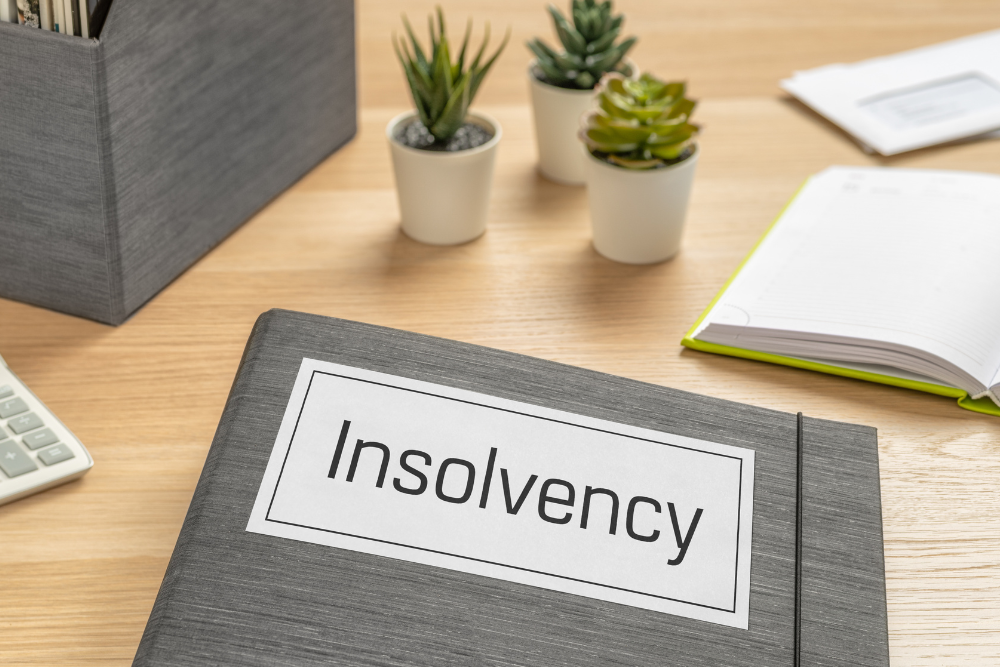Insolvency Practitioner Fundamentals Explained
Insolvency Practitioner Fundamentals Explained
Blog Article
The Main Principles Of Insolvency Practitioner
Table of ContentsEverything about Insolvency PractitionerInsolvency Practitioner Fundamentals ExplainedHow Insolvency Practitioner can Save You Time, Stress, and Money.The smart Trick of Insolvency Practitioner That Nobody is DiscussingGet This Report on Insolvency Practitioner
Whether or not you require to use an insolvency practitioner (IP) to liquidate your company depends upon different elements. While engaging a bankruptcy professional for all types of liquidation is not a lawful demand, doing so can usually improve the procedure and make sure compliance with legal requirements. Liquidating a company is an essential choice that features substantial consequences.
It is a procedure used when a firm does not have any kind of financial institutions, or all of their creditors can be paid off completely with legal rate of interest. Comprehending the different types of bankruptcy procedures can help you establish the ideal course of action for your business's liquidation or other formal bankruptcy treatments itself.
This is necessary in order to stick to legal demands - Insolvency Practitioner. This is due to the fact that IPs have the required credentials and experience to make certain that the liquidation procedure is performed according to all appropriate laws and guidelines. By engaging an accredited insolvency practitioner, you can have satisfaction knowing that your company's liquidation process will certainly be taken care of expertly and in compliance with the pertinent legal requirements
Getting The Insolvency Practitioner To Work
The bankruptcy expert is selected as a liquidator and is in charge of taking care of the firm and liquidator's financial debts impressive obligations and possessions. This process includes selling the company's possessions and dispersing the earnings to lenders. Upon completion of the process, the company is eliminated from the register at Business House.
Failing to do so can cause individual responsibility for the company or supervisor for the creditor's debts. Volunteer liquidation, which consists of Creditors' Voluntary Liquidation (CVL) and Participants' Voluntary Liquidation (MVL), is initiated by the company's supervisors and investors when they can no more pay their debts. In a CVL, the insolvency professional is marked as the liquidator, liable for handling company debts and all company possessions.

Getting My Insolvency Practitioner To Work
By assessing the expertise and experience of possible bankruptcy experts, you can ensure that you choose a specialist who possesses the needed qualifications to handle your firm's liquidation process properly. While anonymous bankruptcy practitioner-led liquidation is often one of the most ideal program of activity for companies encountering bankruptcy, there are alternate methods to take into consideration, such as striking off and partial liquidation.
It's crucial to assess all offered alternatives before choosing the next best service or training course of action for your organization. Striking off firms' signs up is a more uncomplicated and economical means to close dormant or small firms without any financial debts or possessions. To strike off a company, its name is eliminated from the Companies Home register by submitting form DS01.
Prior to choosing striking off, it's vital to evaluate the advantages and drawbacks of this approach and take into consideration whether it's the right selection for your company. Partial liquidation is an additional alternative to bankruptcy practitioner-led liquidation, wherein a company liquidates specific properties and responsibilities while continuing to operate with the staying assets and obligations.
A Bankruptcy Expert will certainly have the ability to suggest you of the best program of action to take and make certain that whatever runs smoothly. Sadly, it is not feasible to sell off a firm without a liquidator. Selecting an authorized insolvency expert is necessary for investigate this site the procedure of voluntary liquidation to begin.
Insolvency Practitioner Things To Know Before You Get This
It is possible to shut and liquidate your firm without utilizing a liquidator, offered your firm is solvent and you meet the eligibility demands to dissolve or liquidate it. However, official website if your firm is financially troubled, you might be needed to utilize a liquidator and begin official bankruptcy procedures. Here are a few other helpful posts regarding business liquidation in the UK:.
Remaining in a position where you're incapable to pay your business's financial institutions is very demanding. In an attempt to prevent raising the level of financial debt, numerous business try to work out directly with their financial institutions and consent to a casual arrangement. If the financial debt is quite tiny and owed to one creditor, and the lender is being participating, becoming part of an informal financial obligation setup is possibly the ideal service, instead of searching the web for 'a bankruptcy practitioner near me'.
On the various other hand, if there are multiple creditors and the degree of financial debt is big, creditors might not be so eager or participating. In order to stay clear of liquidation or personal bankruptcy, it is much better to hire an insolvency professional to create official proposals and negotiate with lenders in your place.
The Only Guide for Insolvency Practitioner
Whilst it is a way to manage financial debt, there are significant threats entailed with this type of financial obligation arrangement - Insolvency Practitioner. If a financial institution is prepared to get in into a casual setup (IA) where the debtor has agreed to make normal, if lower, settlements to repay the financial obligation, it is necessary to stick to the agreement

As a result, the lender is within their legal rights to back out of the agreement and request the courts for your business to be liquidated any time. An official arrangement that has actually been suggested by a bankruptcy expert in your place, and concurred by a creditor, provides a much safer alternative.
Report this page